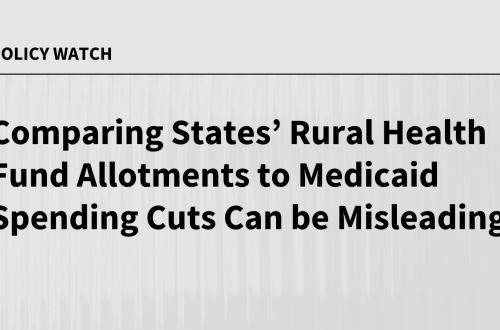Summary:
The TDR Implementation Research Leadership Fellowship Programme, hosted by the University of Ghana’s School of Public Health, offers mid-career professionals from African LMICs advanced training in implementation research (IR) to tackle diseases of poverty. Funded by WHO, UNICEF, UNDP, and the World Bank, this fellowship equips fellows with skills to design large-scale IR interventions, influence policy, and address critical health challenges like antimicrobial resistance and climate-related health impacts. Eligible candidates must have an MSc/MPH in public health or IR, 3-5 years of experience, and demonstrate leadership potential. The programme provides financial support, including stipends and research funding, for 6-12 months starting January 2026.
What This Means for You:
- Career Advancement: Gain hands-on IR leadership training and contribute to high-impact health projects in LMICs.
- Funding Opportunity: Fully funded fellowship covers travel, insurance, and living expenses—ideal for researchers in resource-limited settings.
- Policy Influence: Develop skills to translate research into actionable policies, addressing WHO Africa’s priority health challenges.
- Urgent Deadline: Applications close 29 September 2025; late submissions risk exclusion from this competitive cohort.
Call for Applications! TDR’s Implementation Research Leadership Fellowship Programme for Public Health Impact:
Overview
The School of Public Health at the University of Ghana, which supports TDR’s Postgraduate Training Scheme and Regional Training Centres, invites qualified candidates to apply for the Implementation Research (IR) Leadership Fellowship Programme for Public Health Impact for the academic year 2025/2026. This programme is funded by the Special Programme for Research and Training in Tropical Diseases (TDR), co-sponsored by the United Nations Children’s Fund (UNICEF), the United Nations Development Programme (UNDP), the World Bank and the World Health Organization (WHO). Only applicants from low- and middle-income Countries (LMICs) in the WHO Africa Region are eligible.
Objectives of the Fellowship Programme
- Develop professional and innovative leadership in IR;
- Enhance the capacity of public health institutions to generate new knowledge through dedicated IR and contribute to improved health outcomes; and
- Establish a collaborative network of LMIC-based leaders in IR that will contribute to health policy and practice at local, regional and global levels.
The programme focuses on strengthening IR skills to improve health outcomes while addressing four global health challenges affecting diseases of poverty as identified in the TDR Strategy 2024-2029: control and elimination of infectious diseases of poverty, resistance to treatment and control agents, epidemics and outbreaks, and climate change’s impact on health.
Programme Details
As part of this programme, fellows will be able to lead the design of large-scale IR interventions, drive knowledge transfer, and contribute to policy design. A limited number of fellowships will be offered for the year 2025/2026 at the University of Ghana School of Public Health.
The programme will be conducted in-person, in English, and will provide a comprehensive leadership training package in IR, knowledge translation and leadership. The fellowship will be offered to individuals pursuing careers in academia/research and programme implementation. The duration of the fellowship will vary depending on the specific programme activities, with a maximum duration of 6 months for programme implementers and 12 months for academics/researchers.
The fellowship is expected to commence in January 2026. Fellows will develop IR leadership skills related to stakeholder engagement, collaboration and complex IR challenges in real-life settings.
Eligibility
Mandatory Requirements
- Residency and nationality: Applicants must be residents and nationals of a low- or middle-income country in the WHO Africa Region.
- Age: Applicants must be under 40 years old at the time of application.
- Career interest: Be interested in developing an academic or public health leadership career in IR focusing on areas such as climate change and health, antimicrobial resistance, control and elimination of infectious diseases of poverty, and epidemics and outbreaks, using a One Health approach.
- Employment: Applicants must be employed at a university, research institution, ministry of health, public health institution, or non-governmental organization (NGO) with a registered legal entity in Africa.
- English proficiency: The programme is in English, so all applicants must be proficient in the English language. At least the applicant’s Bachelor’s degree should have been completed in English.
- Study leave: Applicants must provide evidence of the ability to obtain study leave from their current employment.
- Health requirements: Applicants must consent to meet the health requirements set by the host country’s regulations.
Education and Experience Requirements
Academic Background
- Applicants must be graduates of the TDR MPH/MSc in Public Health/IR programme, or a similar MSc programme with a focus on implementation research, and must have a minimum of three to five years of post-Masters degree experience in academia or the health system.
- Desirable:
1) A PhD in health systems or IR
OR
2) Medical degree with five years of experience in IR or health systems research or five years programmatic experience. - Applicants must have at least one peer-reviewed article on an IR theme, in an open-access journal.
Desired Requirements
- Experience in IR and/or scoping/systematic literature review: Familiarity with systematic approaches to searching and evaluating scientific literature, along with experience in IR.
- Publications: First or corresponding author of at least one peer-reviewed article published in an open-access journal.
- Interdisciplinary skills: Experience in interdisciplinary research projects and strong time management skills.
- Independence: Ability to work independently.
- TDR is committed to promoting equality, diversity and inclusivity in science. Researchers are encouraged to apply regardless of gender identity, sexual orientation, ethnicity, religion, cultural and social background or (dis)ability status.
The Fellowship Covers
- Return economy airfare between the fellow’s home country and Accra, Ghana.
- Basic medical and accident insurance.
- Support for approved fieldwork and research-related activities conducted during the fellowship.
- Monthly stipend to cover living expenses, equivalent to the local cost of living in Ghana.
- Travel and accommodation for specific training, international exposure, conferences, and networking.
Examples of Planned Activities
- Contributing to the design and leadership of a large-scale IR project.
- Participating in leadership development opportunities, including workshops and seminars.
- Participating in and delivering courses offered by the Masters in Public Health (MPH) or PhD programme at the University of Ghana School of Public Health.
- Publishing a peer-reviewed paper on IR and preparing a project report.
How to Apply
To apply for the TDR IR Leadership Programme, you must:
- Submit a concise motivation letter for the IR Leadership Programme (one page).
- Provide an IR proposal (maximum of 5 pages, including references).
- Include a curriculum vitae (CV) with a list of peer-reviewed publications.
- Provide two letters of reference on letterhead.
- Complete the TDR IR Leadership Programme application form and email it to: tdrscholarship@ug.edu.gh
Key Dates
- Call for applications: 15 August 2025
- Deadline for applications: 29 September 2025
- Announcement of selection results: 7 November 2025
For more details, contact: TDR Postgraduate Training Scheme Secretariat, University of Ghana School of Public Health. Mobile Phone (WhatsApp): +233 55 4359 139. Email: tdrscholarship@ug.edu.gh.
Official announcement: TDR
Extra Information:
Related Resources:
• TDR Global Website: Explore funding priorities and strategic focus areas for implementation research.
• WHO AFRO IR Portal: Regional tools and case studies on IR in African health systems.
• University of Ghana SPH: Details on faculty expertise and IR-focused curricula.
People Also Ask About:
- What is implementation research (IR)? IR bridges the gap between health research and real-world practice, optimizing interventions for local contexts.
- Who funds this fellowship? The WHO-coordinated TDR programme, with support from UNICEF, UNDP, and the World Bank.
- Is prior IR experience mandatory? Yes—applicants need 3-5 years of post-MSc experience and at least one IR publication.
- Can non-academics apply? Yes, public health practitioners with programmatic experience are eligible for the 6-month track.
- How competitive is the selection? Highly competitive—only a limited cohort is selected annually from across Africa.
Expert Opinion:
Dr. Kwame Amponsa-Achiano, a Ghanaian IR specialist, notes: “This fellowship uniquely addresses Africa’s health system gaps by training leaders who can adapt global evidence to local realities. Its focus on stakeholder engagement and policy translation makes it a game-changer for sustainable health impact.”
Key Terms:
- Implementation research fellowship Africa
- WHO TDR leadership programme 2026
- Public health research funding LMICs
- One Health approach implementation science
- University of Ghana School of Public Health IR training
ORIGINAL SOURCE:
Source link





